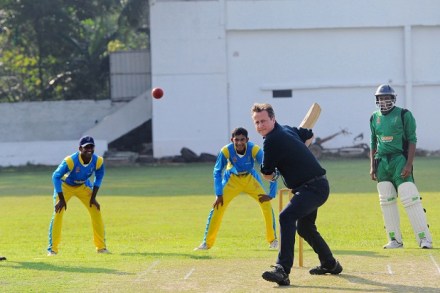Dave gives up on sticky wicket
The prime minister was waxing lyrical about ousted England slogger Kevin Pietersen when speaking to BBC Lancashire earlier today. The PM confessed that he is ‘an enormous fan of KP.’ And added: ‘Some of my most enjoyable times have been watching him tonking the ball all over the park.’ Some members of the media pack have been giving the PM flak for this intervention; but Mr S is willing to give him the benefit of the doubt. Cameron has been mocked for his dubious love of Aston Villa in the past, but he clearly knew what he was talking about this time: ‘A really great moment for me was –



















